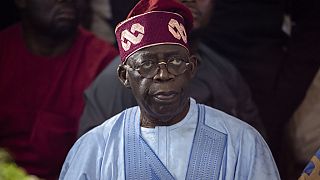Business Africa
Faced with slow growth, an oil sector in recession and rising debt, where does Nigeria’s new government start?
There’s also the mess created by a botched introduction of new bank notes.
In the last seven years, GDP growth averaged 1.1 percent as the country experienced two recessions.
The pandemic and its attendant effects pushed 133 million into poverty, according to the National Bureau of Statistics.
The next four years are being seen as the last chance to pull Africa’s largest economy out of the pits.
As he prepares to take oath, the president-elect must articulate a practical strategy on how to structurally transform the economy, moving labor and resources from low productivity sectors to high productivity sectors.
Gospel Obele, the chief economist at Streetnomics Global joins the show with thoughts on the most important decisions awaiting Bola Tinubu’s government.
G20 finance meeting ends with no deal on debt relief
A meeting of G20 finance ministers in India last week failed to agree a debt relief deal for low-income countries, prolonging the anxiety in Zambia, Ghana and Ethiopia.
The talks are deadlocked over China’s demand that multilateral development banks and private creditors too, accept losses.
Tanzania approves construction of Uganda oil pipeline
In a major setback for climate campaigners, Tanzania has approved the construction of a pipeline for Uganda’s oil.
It is an important win for Kampala’s ambitions to join the oil producers’ club in 2025.





![Crypto seeks regulation, market stability [Business Africa]](https://static.euronews.com/articles/stories/07/47/33/44/320x180_cmsv2_63a90985-82d3-5217-bc7e-7feaace2a30e-7473344.jpg)






01:39
Sustainable development financing conference opens in Seville
Go to video
Second round: Ramaphosa faces Trump again after Oval Office fallout
01:03
Ethiopia to post faster growth despite debt, inflation
01:31
Nigerians struggle to afford rams for Eid celebrations as inflation soars
01:05
Nigeria ruling party endorses Tinubu for 2027 election
Go to video
Nigeria completes $3.4 Billion IMF COVID-19 loan repayment, faces ongoing annual charges